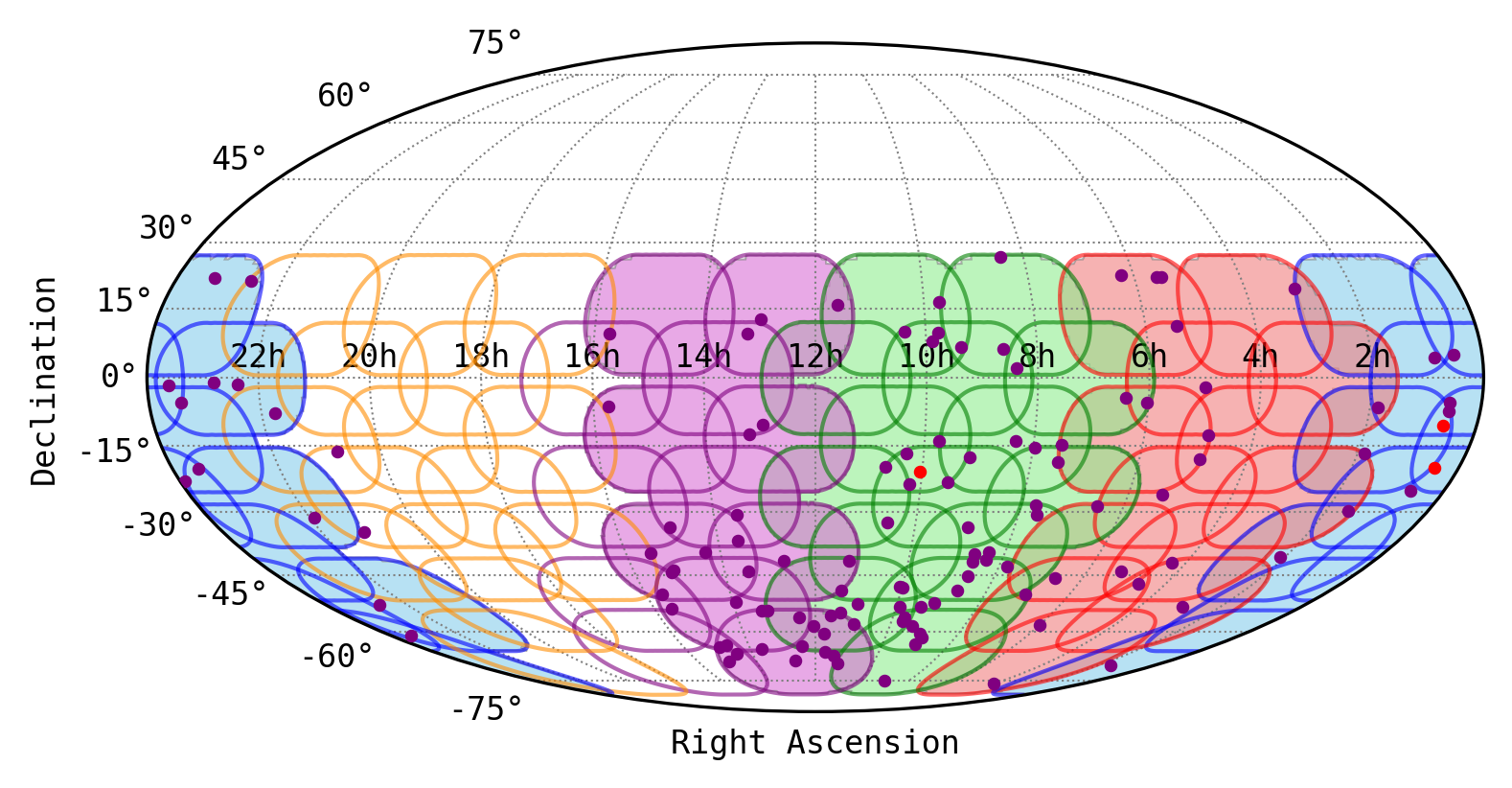Software support for the SMART pulsar survey
CI: – Dr. Ramesh Bhat
The Southern-sky MWA Rapid Two-meter (SMART) survey is a new initiative to leverage the MWA’s large field-of-view to find new pulsars, and to demonstrate the feasibility of a similar large survey with the low-frequency SKA (SKA-Low). It is enabled by a recent upgrade to the MWA and its well-matured voltage-capture capability and software support base. The SMART survey will surpass all previous and ongoing pulsar surveys in survey speed, while reaching sufficiently high depths in sensitivity. This astonishing efficiency however comes at the expense of substantial computational requirements, necessitating the distribution and coordination of data processing, as well as effective dissemination of data products and results. The survey’s unique design allows instantaneous sampling of ~600 sq. deg. sky in high-time and -frequency resolutions. The data for each sampled region are most efficiently processed using software pipelines that generate ~7000 high-sensitivity tied-array beams, each of which is then independently processed to search for dispersed periodic (and transient) signals. The survey will accrue
~3 PB of data over its 3-year timeline and will reach a limiting sensitivity 2-4 times deeper than the previous-generation low-frequency southern-sky pulsar survey. It will employ novel algorithms for optimal detection sensitivity to short-period millisecond pulsars that are highly sought after for pulsar timing array applications.
This proposal requests software support to address one specific (and critically-important) requirement to ensure the success of the SMART survey; namely, the development of a centralised data management system that will facilitate efficient coordination and tracking of data processing efforts across multiple computing platforms. This system will consist of (1) a database containing the metadata associated with both intermediate and final data products produced by the processing pipeline, and (2) a web interface that enables various database manipulation tasks, provides visualisation of the completion status of the survey, and facilitates the collation and scrutiny of millions of candidate signals from the processing, to arrive at genuinely-promising candidate pulsars. Implementation of this will expedite the scientific discoveries and will maximise scientific returns. Since the MWA is Australia’s official Precursor for the SKA, the lessons learned, and the techniques developed, will also inform future pulsar surveys planned with SKA-Low.
SpaceAustralia has a nice write up on the SMART survey project.

